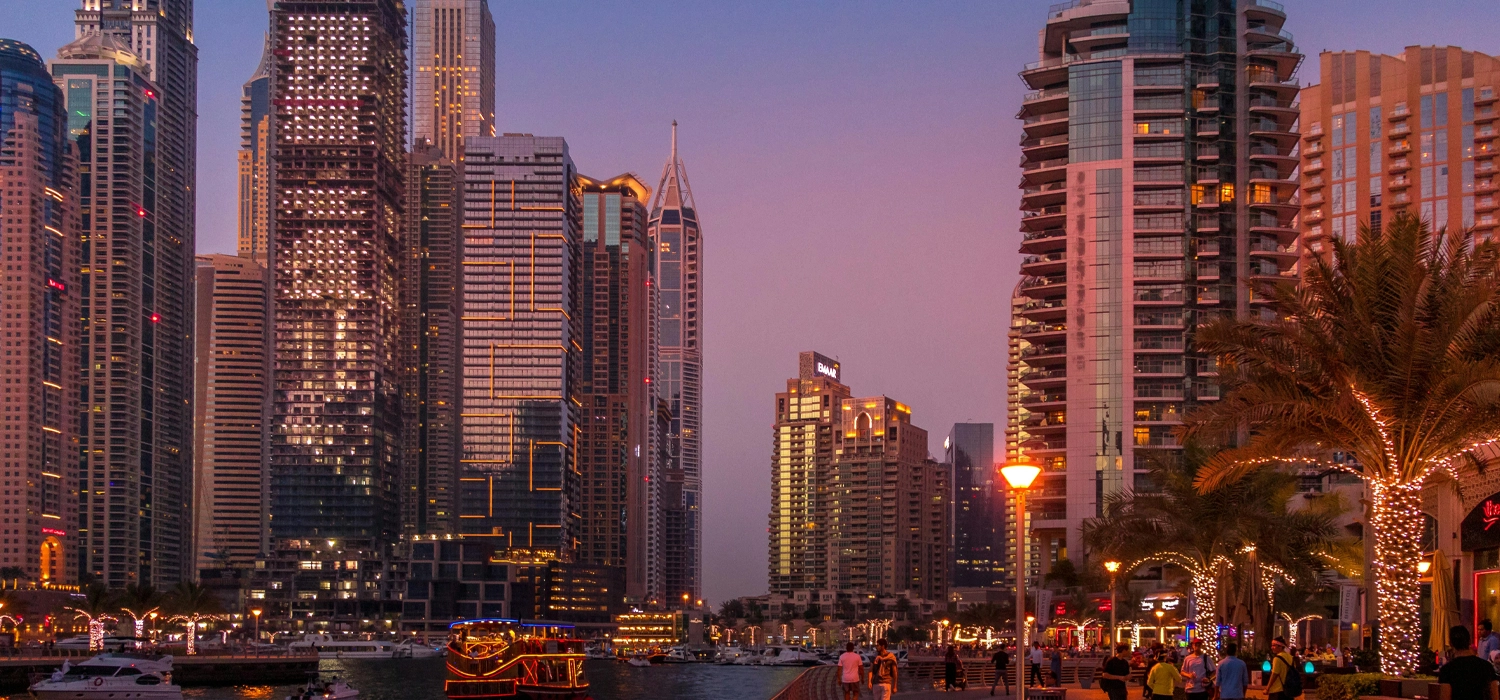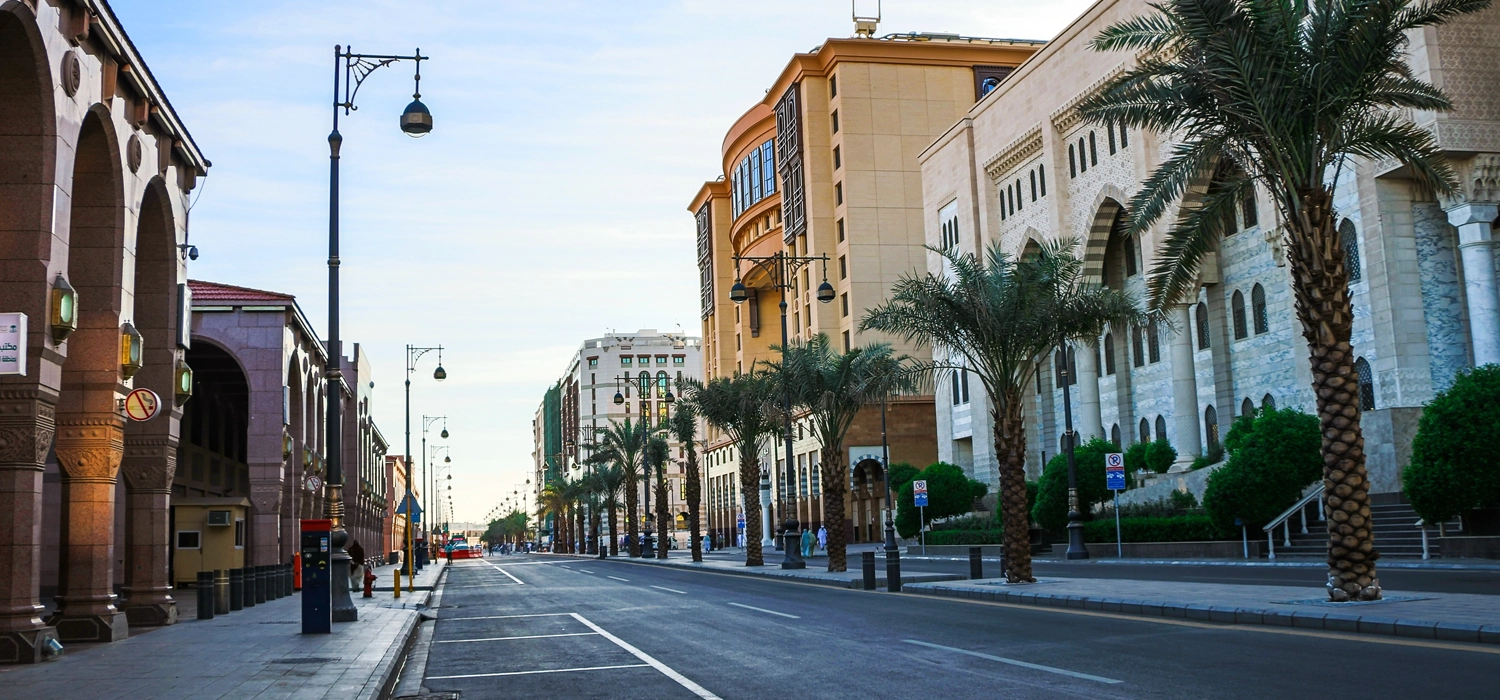UAE and Saudi Arabia work visas can feel like a maze—but they don’t have to. This guide gives you the short version: what both countries share, where they differ, and the fastest path from job offer to long-term residency. Every section includes official links so you can click and go.

Pro tip: Before HR asks, collect degree attestations, employment letters, and a recent police clearance. It can save weeks.
Marina Sushentseva
Career consultant | Career in the Middle East| Book a 30 min call with Marina
Thinking about a move abroad? We can help with the practical bits — CV/LinkedIn to local standards, interview prep, and cultural context across the UAE, Saudi Arabia and Qatar; if helpful, you can start with a short conversation or see how we work.
What’s the Same in UAE and Saudi Arabia?
- You need a job offer.
- That job offer gives you sponsorship. Your employer becomes your sponsor and handles most of the visa process.
- Here’s the standard flow
Here’s the standard flow: (the original image for editing is attached)

Who’s in Demand and Why Track Record Matters
Tip: Gather degree attestations, past employment letters, and a recent police clearance in advance. It saves weeks.
Marina Sushentseva
Career consultant | Career in the Middle East | Book a 30 min call with Marina
UAE and Saudi Arabia work visas — documents to prepare
- Degree + attestation
- Employment letters (with dates/titles)
- Police clearance (if requested)
- Salary certificate and bank statements (useful for long-term visas)




Key differences (and what to do)
UAE: from job offer to long-term residency
Congratulations on your job offer in the UAE! The initial visa process is usually straightforward. Your employer will secure approval from MOHRE (the Ministry of Human Resources and Emiratisation), and you’ll enter the country on an entry permit. From there, you’ll complete your medical test and biometrics before receiving your Emirates ID as the official proof of residency. On employer sponsorship, residence permits can be issued for 1, 2 or 3 years, depending on type and sponsor.
A few quick tips for negotiating your contract:
- Probation: capped at 6 months (Article 9). UAE Legislation+2UAE Government Portal+2
- Non-compete: allowed, must be reasonable; max 2 years. UAE Government Portal
- Passports: employers must not keep employee passports (only authorities can hold in specific cases). Ask The Law
The Real Advantage: Self-sponsored Long-Term Visas
Once you have your initial employer-sponsored visa, you can start thinking about long-term, self-sponsored residencies.
The two most common are the Golden Visa and the Green Visa.
The Golden Visa has several different tracks, including for investors, entrepreneurs, and individuals with exceptional talent (Skilled Professional). For the purpose of this article, we’ll focus on the Skilled Professional track, as it’s the most common path for career professionals moving to the UAE.
Golden Visa (Skilled Professional track)
10 years, self-sponsored
This is a fantastic 10-year visa for top-tier professionals. It gives you the freedom to live and work in the UAE without a sponsor. To qualify, you must:
- Be working in a MOHRE-classified Skill Level 1 or 2 role.
- Have a valid UAE employment contract.
- Hold a bachelor’s degree or higher.
- Provide evidence of monthly salary ≥ AED 30,000 (per salary certificate and bank statements). For Golden guidance and nominations, see Abu Dhabi Residents Office (ADRO) and the UAE Government Portal.

Green Visa (Skilled Employee)
5 years, self-sponsored
The Green Visa is a smart option for many mid-to-senior professionals. It’s a 5-year, self-sponsored visa that helps you build a career in the UAE without being tied to a single employer. You can qualify if you have:
- A valid employment contract.
- A bachelor’s degree.
- A MOHRE Skill Level of 1, 2, or 3.
- A salary of at least AED 15,000 per month.Learn more on the UAE Government Portal.
Wait, what’s a Skill Level?
MOHRE classifies every job in the UAE with a specific Skill Level, which quietly determines your eligibility for these visas.
- Level 1: Legislators, managers, and business executives
- Level 2: Professionals in scientific, technical and human fields
- Level 3: Technicians in scientific, technical and humanitarian fields
Source: u.ae — Skill Levels of Jobs in the UAE
Important: The Golden Visa (Skilled Professional) only accepts Level 1 or 2, while the Green Visa is a great path for those in Levels 1 through 3.

How to Check Your Skill Level
You can check your level in just a minute.
- Look at your MOHRE contract or work permit for the occupation code and Skill Level.
- Ask your HR department to confirm your Skill Level and that your basic salary reported to MOHRE is at least AED 30,000 for the Golden Visa. (For Dubai processing specifics, residency services are handled by GDRFA Dubai.)
What to Do If You Don’t Qualify (Yet)
If your job is classified as Level 3 or your basic salary is just under the threshold, don’t worry. You have a plan:
- Go Green First, Golden Later: Use the Green Visa to become self-sponsored and build your career in the UAE. Once your salary or position meets the criteria, you can apply for the Golden Visa.
- Align Your Role: Work with your HR department to ensure your job title and duties accurately reflect your senior position. This may help you get reclassified to a Level 2 role.
- Restructure Your Pay: Ask for your basic salary to be adjusted to cross the AED 30,000 mark. Don’t rely on allowances, as they may not count.
Red flags that could block a Golden Visa:
- Your business card says “Manager,” but MOHRE has you as a Level 3 technician.
- Your total salary is over AED 30,000, but your basic salary is below the threshold.
- You’re missing a required professional license.
A Different Path: The Blue Residency
If your professional work is focused on climate and sustainability, there’s another path for you. The Blue Residency is a 10-year, self-sponsored visa for individuals with exceptional environmental contributions. You don’t need an employer sponsor and ICP allows eligible applicants outside the UAE to obtain a 180-day multiple-entry permit to complete Blue Residency procedures. Details on eligibility and application steps: UAE Blue Visa — official page.
This is a separate lane from the Skilled Professional tracks, so only pursue it if your profile is a clear fit for the environmental criteria.
UAE long-term residencies (pro track)
| Visa | Initial sponsorship needed? | Duration | Core gates (role & education) | Salary gate (basic only) | When you can apply (tenure/evidence) |
| Golden Visa — Skilled Professional | Yes, practically. You must already hold a UAE employment contract in a MOHRE Level 1–2 role. Most candidates start on an employer-sponsored visa, then make transition; the Golden outcome itself is self-sponsored. | 10 years | MOHRE Level 1–2 + bachelor’s (+ UAE licence if regulated) | ≥ AED 30,000/month basic (allowances don’t count) | No federal minimum tenure. In practice, plan to show ~6 months of UAE payroll at/above 30k (commonly requested). |
| Green Visa — Skilled Employee | Yes (contract-based). You need a valid UAE employment contract; many enter on an employer entry permit and switch to this self-sponsored 5-year visa once live. | 5 years | MOHRE Level 1–3 + bachelor’s | ≥ AED 15,000/month basic | No stated tenure. Apply as soon as the contract is active and salary gate is met (salary certificate and/or bank proofs may be requested). |
| Blue Residency (environment track) | No. Fully self-sponsored; you can apply from your home country (nomination route also exists). | 10 years | Exceptional contributions to environment/sustainability (research, innovation, advocacy) | No salary requirement | Anytime once your evidence/nomination is ready (ICP may issue a multi-entry permit to finish formalities in the UAE). |
Important notes
Salary = basic only. Housing/transport/other allowances don’t count toward the AED 30k (Golden) or 15k (Green) thresholds. If your total comp clears the bar but your basic doesn’t, you won’t qualify — restructure the package.
From Job Offer to Long-Term Residency: Saudi Arabia Visa Paths for Professionals
You’ll begin your life in Saudi Arabia on an employer-sponsored work visa. The process is pretty straightforward: your new company handles the work-visa authorization from the Ministry of Foreign Affairs (MOFA) e-Services. With that in hand, you’ll go for consular stamping at home, which means getting the visa placed in your passport.
Once you land, you’re on the clock. You’ll complete a medical check and biometrics (fingerprints and a photo), and your entry visa will be converted into your Iqama, which is your resident ID. Banks and regulators reference a three-month (≈90-day) window after arrival tied to issuing the Iqama. Think of this as a critical window — use it to complete all the necessary checks and provide any documents HR needs. Banks may not open accounts for expatriates working under contract without a valid Iqama. For example, you likely won’t be able to sign a long-term lease, or travel in and out of the country as a resident.
To stay on track, book your appointments in the first week. Ask HR for a clear, dated timeline, and if you haven’t seen much progress by day 60, follow up. That 90-day mark is a firm deadline.
Your Long-Term Goal: Premium Residency
or senior professionals, the ultimate goal is often to transition to Premium Residency. This is a material change in rights. It’s a self-sponsored status that allows you to live, work, and even invest in the Kingdom without needing a local sponsor.
You can apply from within Saudi Arabia or even from abroad, directly through the official Premium Residency Center (PRC) portal. There are different categories, including for exceptional talents, investors, and entrepreneurs.
For senior hires, the key benefits are huge:
- Employment mobility without a local sponsor: you may change employers and run businesses under your own residency.
- Ownership: Benefits include the ability to conduct business and own real estate (with specified exceptions), and exemption from expat levies.
- Family: Your family can join you under this same umbrella, with more extensive rights than a standard dependent setup.
Your Long-Term Goal: Premium Residency
There’s no rule that says you have to wait a certain number of years, but most professionals find it practical to spend about 6 to 12 months in the country first. This gives you time to build a strong profile — with a clear job title, a proven track record, and a record of your achievements. You can also apply before you move if you already meet the criteria.
PRC criteria for ‘Special Talent’ include minimum monthly salaries of SAR 14,000 (researchers), SAR 35,000 (health/science), and SAR 80,000 (executives), plus degree, experience, and employer recommendation. See PRC — Services & Terms.
Here’s a quick breakdown of the salary and experience requirements for key roles:
- Researchers: You’ll need a salary of at least SAR 14,000 per month, a bachelor’s degree, three-plus years of experience, a recommendation from your employer, and published work (typically at least three peer-reviewed papers).
- Healthcare & Scientific Professionals: The salary threshold here is higher, at least SAR 35,000 per month. You’ll also need a bachelor’s degree, at least three years of experience, an employer recommendation, and evidence of your impact in your field.
- Executives (Senior Leadership): This is for those at the top. You’ll need a salary of at least SAR 80,000 per month along with an executive-level contract and an employer recommendation.
In addition to the salary, you’ll need to document your degree, professional licenses (if your field is regulated), and proof of your excellence, such as leadership roles, major projects, awards, or patents.
Source: pr.gov.sa — Services & Terms
Saudi Arabia Premium Residency (PRC) for professionals
| PRC product (pro-relevant) | Salary gate (total monthly) | Min. experience | Degree | Employer recommendation | Typical proofs of excellence |
| Executive Leadership (senior roles) | ≥ SAR 80,000 | Commonly 3+ yrs in executive seat | Bachelor’s+ | Required | Executive contract, board-level responsibilities, major P&L/projects |
| Healthcare & Scientific Professionals | ≥ SAR 35,000 | 3+ yrs | Bachelor’s+ | Required | Licensing, publications/clinical outcomes, specialist recognition |
| Researchers | ≥ SAR 14,000 | 3+ yrs | Bachelor’s+ | Required | Peer-reviewed publications (often ≥3), grants/patents |

Your Practical Transition Plan
Right now (on your sponsored visa):
- Get that Iqama sorted within the 90-day window. Keep copies of everything!
- Make sure your employment contract and job title accurately reflect your senior duties, as this will be important later.
- Start a “proof folder” right away. Save things like salary letters, recommendations from your employer, performance reviews, and any awards or publications.
After 6–12 months (when you’re ready):
- Pick the PRC product that fits (e.g., Special Talent).
- Submit your application and all your documents through the official pr.gov.sa website. The PRC will review everything and, if approved, issue your Premium Residency.
A final thought: While you’re on your sponsored visa, you can still use the ongoing reforms to your advantage. Under HRSD’s Labor Reform Initiative, eligible expatriate workers can request exit/re-entry electronically without employer pre-approval (see MOFA e-Services for related processes).
UAE and Saudi Arabia work visas — long-term options at a glance
The professional landscape of the UAE and Saudi Arabia is undergoing a dramatic transformation, and for skilled professionals, this means an unprecedented opportunity to build a long-term future in the region. Both the UAE and Saudi Arabia are actively complementing employer sponsorship with new long-term, self-sponsored options. In the UAE, the path often begins with a standard sponsored visa, but for those who qualify, it can quickly transition to the empowering 5-year Green Visa or the prestigious 10-year Golden Visa, offering employment mobility not tied to a single sponsor. Similarly, Saudi Arabia is introducing a new era of residency framework through its Premium Residency program, that allows senior talent to work, invest, and live in the Kingdom without a sponsor. It isn’t just new rules. It’s a clear long-term pathway — aligned with national priorities — to attract and keep skilled professionals. If you’re a fit, you can plan on a longer horizon in the UAE and Saudi Arabia and contribute meaningfully to the region’s development.
Ready to take the next step? Choose the support level that fits your goals and we’ll help you land faster and grow stronger in the Middle East — book a rapid session with Marina Sushentseva or explore services.
Useful links (official)
United Arab Emirates (UAE)
- UAE Government Portal (u.ae) – plain-English pages for visas, residency, Emirates ID, Golden/Green/Blue.
- GDRFA Dubai: https://gdrfad.gov.ae/en — Dubai’s residency authority (work/residence permits, Golden/Green processing in Dubai).
- MOHRE: https://www.mohre.gov.ae/en/home.aspx — employment contracts, work permits, labour law services.
- Abu Dhabi Residents Office (ADRO): https://adro.gov.ae/ — Golden Visa guidance & nominations.
Blue Visa (official page): https://u.ae/en/information-and-services/visa-and-emirates-id/residence-visas/the-blue-visa
Saudi Arabia (KSA)
- MOFA e-Services: https://www.mofa.gov.sa/en/eservices/pages/default.aspx — work-visa authorisations and consular visa services.
- Premium Residency Center (PRC): https://pr.gov.sa/ — apply for Saudi Premium Residency (sponsor-free).






